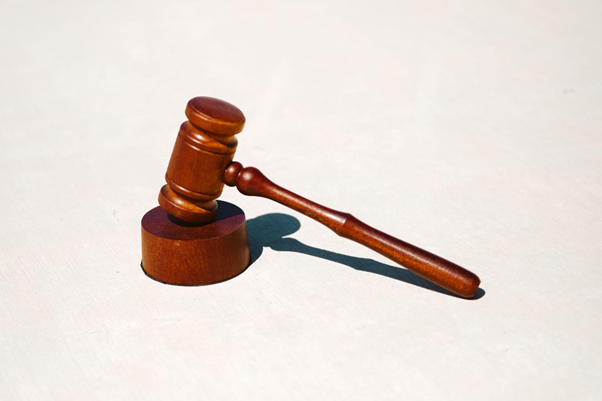Men’s Divorce Mediation vs. Litigation – Choosing the Right Approach with Your Attorney
Divorce is a difficult and emotionally taxing process that can affect people’s lives in the worst possible way. When a couple decides to get a divorce, they must prepare themselves for all the legal repercussions they would have to face. Both parties need to know and understand all kinds of ways they could go about when settling. So, the two most common methods of resolving divorce are mediation and litigation.
Let’s find out how each works.
Divorce Mediation
Divorce mediation is a process where divorcing couples work with a neutral third-party mediator to reach a mutually acceptable agreement. The mediator facilitates open communication and assists the couple in identifying and resolving their issues. Let’s take a look at some of the advantages of divorce mediation:
Confidentiality
Mediation proceedings are generally confidential, ensuring that sensitive details and discussions remain private and are not open to the public, keeping a lid on divorcing couples’ private matters.
Control and Flexibility
Mediation allows couples to maintain control over the decision-making process. Instead of leaving important matters in the hands of a judge, the couple can craft an agreement that aligns with their values and priorities, helping them achieve a win-win situation.
Cost-effective
Mediation is often more affordable compared to litigation. The process typically requires fewer hours of divorce attorney time and avoids the costs associated with court appearances and lengthy legal battles.
Faster Resolution
Mediation can expedite divorce rather quicker since couples have more control over scheduling and decision-making. With fewer court appearances and procedural delays, couples can often resolve more quickly.
Better Communication and Co-Parenting
Mediation promotes healthy communication between divorcing couples, which is particularly important if there are children involved. The collaborative nature of divorce mediation can help establish a foundation for effective co-parenting and minimize the negative impact on children.
Reduced Conflict and Emotional Strain
Mediation aims to reduce conflict and foster a cooperative environment, which can lead to less emotional stress for both parties. It encourages a problem-solving mindset rather than adversarial positions, promoting a more amicable and respectful divorce process.
Litigation – The Traditional Court Approach
Litigation involves resolving divorce disputes through the court system. Each spouse hires their divorce attorney, and a judge makes decisions on the couple’s behalf when they cannot reach an agreement. Litigation can be lengthy and contentious, often resulting in increased stress and financial burden. Here are some situations where litigation might be appropriate:
Non-Cooperative Spouse
When one spouse is uncooperative or unwilling to participate in mediation, litigation may be necessary to safeguard their rights and interests. Mediation relies on both parties’ voluntary engagement and active involvement, and when this cannot be achieved, pursuing litigation becomes a more viable course of action.
Urgency and Immediate Relief
In certain situations, such as cases involving domestic violence or emergency child custody matters, immediate relief may be necessary. Litigation provides a more structured and expedited process for obtaining temporary orders or restraining orders to address urgent needs and ensure the safety and well-being of all parties involved.
Legal Precedent and Clarification
Legal precedent and clarification can be sought through litigation when there are unresolved legal issues or disputes. A judge has the chance to make a ruling that creates a legal precedent by bringing a matter to court. This precedent offers clarity and direction in the interpretation and implementation of the law, serving as a guiding principle for similar instances in the future.
Discovery and Investigation
In complex divorce cases where there may be hidden assets, financial discrepancies, or suspicions of misconduct, litigation offers the advantage of formal discovery processes. Divorce attorneys can gather evidence and information that may be crucial to the case through subpoenas, depositions, and interrogatories.
Enforcing Agreements
In some instances, after mediation or negotiation, one party may fail to comply with the terms of the agreement. In such cases, litigation can be used to enforce the agreed-upon terms and hold the non-compliant party accountable.
Wrapping Up: What Should You Go With?
When confronted with the choice between divorce mediation and litigation, there is no universal solution that suits everyone. To effectively handle the divorce process, it is crucial to carefully evaluate your circumstances and get legal counsel from an experienced divorce attorney. Whether you choose mediation or litigation, the main goal should be to handle the divorce proceedings honestly, minimize confrontations, and put your children’s well-being first, if any.
If you are currently dealing with any family or divorce-related issues, Krompier Law is here to help. We are proudly led by Douglas I. Krompier, an accomplished attorney with an MBA degree and over 20 years of divorce practice experience. With wide-ranging expertise in fields such as finance, economics, accounting, tax, investment, real estate, banking, and teaching at a college level, we offer our professional services to the fullest to assist you during this challenging period. Reach out to us today to arrange a consultation and benefit from our guidance.



